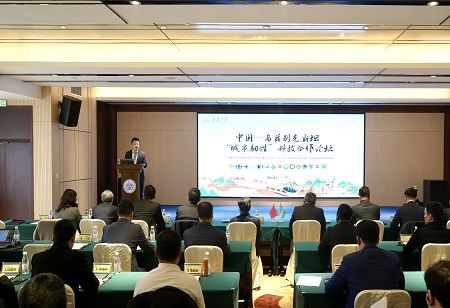The China-Uzbekistan 'Urban Resilience' science and technology cooperation and training project has been successfully concluded at Chongqing University. During the past month, 35 young scientists from Uzbekistan participated in policy briefings, technical exchanges, and expert-led lectures arranged by Chongqing University for them to gain better insight into recent research and practical expertise of China on urban resilience.
This concept of urban resilience is often used in disaster risk reduction and management. It pertains to a city's capacity to withstand disasters and recover well, using resources appropriately, to reduce the impacts, and allocating resources efficiently to facilitate quick recovery.
Chongqing University organized a high-quality teaching team of 15 experts to deliver the training services. These experts, drawn from diverse disciplines, including architecture, urban and rural planning, civil engineering, construction management, building materials, and seismology, provided training in multiple fields, such as urban construction, emergency management, and technological innovation. The training included expert lectures, site visits, and group discussions.
Throughout the project, both sides engaged in in-depth discussions and practical work on scientific research cooperation, focusing on standardization in the housing and urban development sectors and the planning and design of super-high-rise buildings. These trainees presented their final reports. Representatives from Uzbekistan expressed their appreciation for the practical knowledge gained in areas such as housing sector standard setting, disaster response technologies, and urban planning design, which will enhance Uzbekistan's policies and technical capabilities.
In parallel with the closing ceremony, a cooperation forum was held, where five experts from both China and Uzbekistan delivered keynote speeches, sharing their insights and perspectives on research in urban resilience.
Xie Hui, the project leader and Vice Dean of the Institute for Science and Technology Development at Chongqing University, said, "Sixteen institutions from China and Uzbekistan have submitted applications to join the 'China-Uzbekistan Urban Science Joint Laboratory. ' This has expanded our network and reflects the strong enthusiasm for China-Uzbek cooperation and urban scientific research. This further advances long-term cooperation and development between both countries in this field and increases the laboratory's international influence".
The 'China-Uzbekistan Urban Science Joint Laboratory' was established in August 2024 through collaboration between Chongqing University, the Uzbek Ministry of Construction, and Tashkent Architecture and Civil Engineering University. It aims to promote high-quality urban development in Belt and Road countries.
"Through the 'China-Uzbekistan Urban Science Joint Laboratory,' we will jointly promote urban construction technologies and experiences suitable for Belt and Road countries, particularly in areas such as earthquake safety, green buildings, and smart city technologies, accelerating the application and innovation of these technologies through collaborative projects", added Xie Hui.
He emphasized that both sides would continue to deepen research in cutting-edge fields such as resilient and healthy cities, jointly apply for international research funding, and promote the transformation of scientific research achievements.

